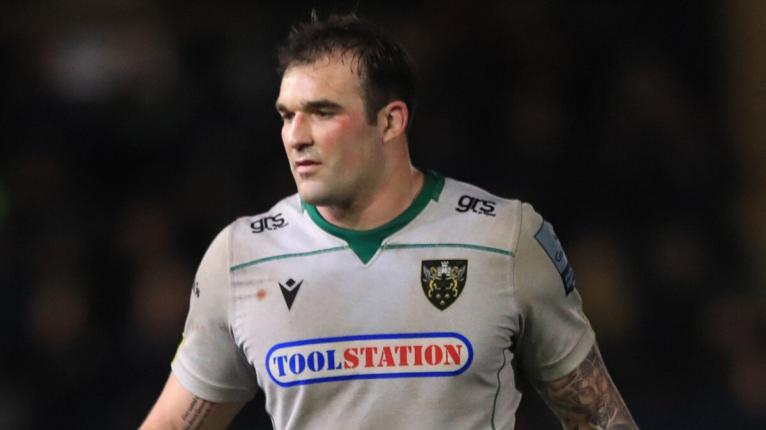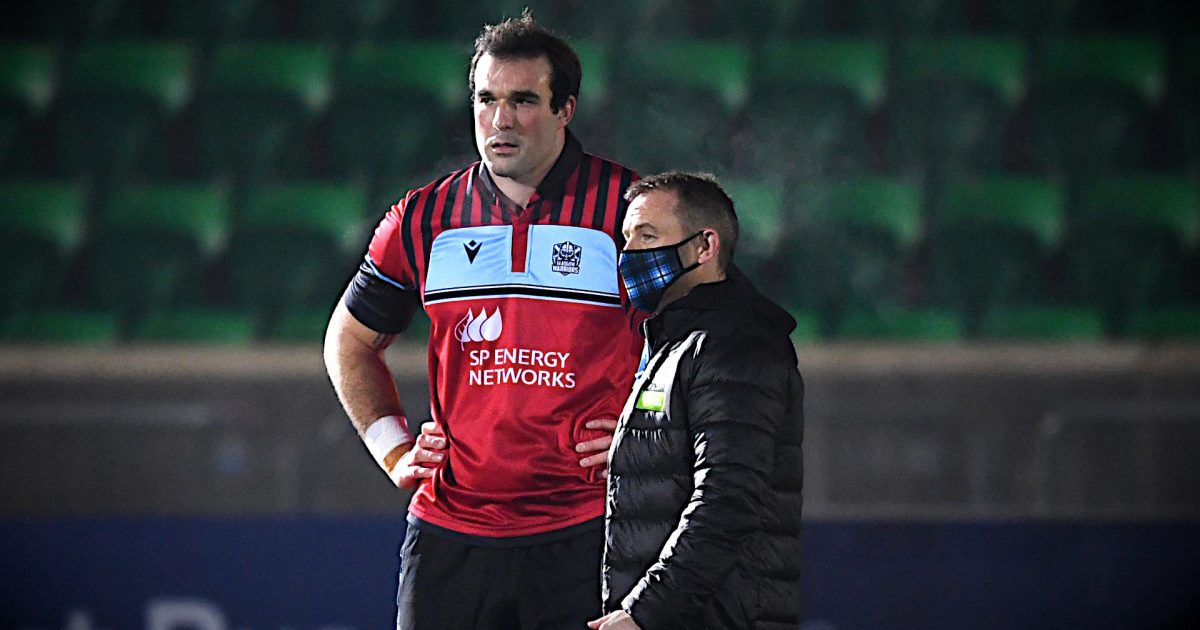Nineteen-year-old Lewis Bean landed in sprawling Camp Bastion and marvelled at the world he had entered. The arid Afghan desert stretched out in all directions. Its searing heat, its dust, and the sheer scale of Bastion itself assaulted his senses. The former British airbase, he says, was “the size of Reading back then”. At the height of NATO-led operations in the country, it could hold over 32,000 people.
Rifleman Bean had never touched a rugby ball in 2011, let alone imagined a sporting career that would take him from the army to the English Championship, Birmingham Moseley to Northampton Saints and eventually north to Glasgow’s West End, where he has joined the Warriors after an impressive loan stint last season.
No, in those days, his mind was consumed with the far starker task of quelling Taliban forces. Gunfights with insurgents, IEDs (improvised explosive devices) that littered the roads, danger and malevolence lurking at every turn.
At Bastion, Bean spent a week on what the army calls RSOI – acclimatisation, briefings on the latest tactics favoured by the Taliban, a last opportunity to prepare – and then he was off into the fraught and deadly wilderness.
“You get in a Chinook helicopter, fly out to your post, get your brief and then you’re off on patrol,” the lock tells RugbyPass. “A few hours earlier, I was in Bastion. Now I am patrolling along the front.
“You live in a cot bed with a mosquito dome. That’s you for however many months. You get ‘fresh’ food – a few cartons of milk and vegetables – but if the road is too IED-ed, or there are sandstorms, the vehicles can’t come in so you could go a month or so without post or veg, living off rations.
“You write letters; all the technology we have, and you’re sat writing letters to communicate. At 19, back home you had an iPhone, everything. You weren’t allowed to bring you phone; you’re writing a letter to all your friends.”
Bean toured Afghanistan twice. His first deployment, a decade ago, was especially brutal, beyond anything that he could have pictured.
“My first contact, I don’t think I shot a round,” he says. “The senior lads got on with it and I just did what they told me. It’d have been Taliban insurgents we were fighting. You get them from all sorts. You’ve got a lot of extremists that just want to have a scrap with you, lads from Pakistan who come over the border just to fight for the cause.
“You get what we call ‘ten dollars to Taliban’, which are local lads who the Taliban will give an AK-47 and ammunition to, and tell them to start shooting when they see a patrol. They’ll just shoot and scoot, they’re not really trained. They’re giving it the old, firing over a compound wall hoping for the best. It is just surreal.
“It wasn’t that you’d get shot at three times in a tour. You could get shot at three or four times a day. Or you could have a contact IED twice a day. Out there, they class it as a low-intensity minefield.”
In reflecting on the skirmishes, Bean describes how the insurgents got so clever in their bomb-making that they constructed “no-metal IEDs” which could not be detected by army kit. He talks about the deals struck with locals to uncover these death traps. He speaks of the many perils upon which a soldier might – literally – stumble.
This is so violently, chillingly different to anything all but a few elite sportspeople experience. It often sparks a curiosity in his team-mates.
“You get asked a lot of questions like, have you killed anyone? No-one really answers it. You just say, ‘Look, we were out there’. Lads did get shot. Lads did get killed. Lads did get blown up. It’s part of being out there. I don’t mind people asking me because you only really hear about the lads who get killed.
“Lads get returned to unit or sent home just because of illness. Afghan fever was a massive thing – we’re not used to it so it really affects us. Injuries, a broken arm or a broken ankle, you can get sent home for. Some lads will get bitten by something.
“The weight that you’re patrolling with is ridiculous. I was a GPMG gunner – that machine gun weighs 11KG. You’d have eight litres of water, 1300 link ammunition, night sights, rations, medical kit, radios, grenades. Lads will go down with heat exhaustion. It’s just a mad place to be.”
Mad though it was, Bean loved his time in the army. It wasn’t until he was spotted lumbering around playing touch with Fijian serviceman that rugby became an enticing possibility. Major Andy Sanger, then Army head coach and now Harlequins player development manager, could hardly miss the 6ft 8ins bruiser frolicking on the paddock.
Sanger taught Bean, engaged, mentored and cajoled him into giving this new and unfamiliar sport a crack.
“I went down to train and I was absolutely terrible. Andy really did believe in me,” he says.
By 2017, Bean was a corporal and his regiment were poised to embark on a tour of Iraq and South Sudan. But when he starred in the 100th Army-Navy fixture at Twickenham, his phone lit up with messages from directors of rugby. He chose to throw in his lot with this beguiling game and signed for Championship side Birmingham Mosely.
https://twitter.com/LewisBean15/status/1028327583862190085?s=20
He sees great parallels between his two careers. The organisation and discipline, the camaraderie and brotherhood, the confrontation and the mischief-making.
“The military and rugby are very similar. Through the week, you do your training, rehearsals, drills. On a weekend, if the line-out caller says this line-out, everyone knows what they’re doing. It’s the same if you’re getting a contact, everyone knows what they should be doing and where they should be. It’s just a very drilled environment.
“We go to breakfast at the club together, go to a meeting together, which might be a lesson in the army or whatever. Even going down to sub-units in the army, you’ll be in a company and in that company you’ll be with a platoon. In a team, you’ll be a forward or a back, split off and do your own sub-unit prep. Then you all come together as one, it all works and interlocks.
“At the end of the day you have dinner together. You all go out for coffees and socialise. I joined the army when I’d just turned 18 and I’ve always been around the boys. It’s the same with rugby, you just fit in. I’ve really enjoyed it.”

From the Championship, Bean climbed to Worcester Warriors and then Northampton in 2019. He did well at Franklin’s Gardens, but found himself shunted down the pecking order when Courtney Lawes, David Ribbans and Api Ratuniyarawa were all fit and motoring.
Danny Wilson took him to Glasgow last season as the Warriors coach lost second-rows like falling buffalo. Taqele Naiyaravoro, the immensely proportioned Saints wing who spent a season at Scotstoun in 2015, gave Glasgow a glowing reference. And when the opportunity arose to flit north on a permanent basis, Bean leapt at it.
“Taqele, Big T, was my neighbour; we were quite tight and he loved it up here. He said he’d have stayed if it wasn’t for the weather.
“I was pretty shocked by how good the club have been in terms of welfare – ‘What do you need? Do you need a house or a flat? How many bedrooms? Does your girlfriend need a job? Do you have kids? Do you need flights up?’ At Northampton it was nothing like that.
“Everyone was just real sound with me. I thought it was going to be a bunch of angry Scots everywhere and I’d be an Englishman getting the piss taken out of me. I was surprised by the different mix and diversity of lads. They just made me feel really welcome.”
On the field, Bean found that he was given more freedom to bulldoze in open field and used in a new, invigorating fashion. Coronavirus denied Wilson the opportunity to recruit properly last year, consigning Glasgow to a grim Pro14 campaign. Only now, a season into the job, is the coach able to assemble something approaching the team he wants and tool up with southern hemisphere acquisitions.
“Danny was outright honest with me and I appreciated that honesty,” Bean says. “Danny wants to bring in a bigger brand of lads, a big tight-five. He said to me that Scottish rugby has been known as a very fast style, lighter guys, wanting to play a lot of phases. He wants to keep the phases but have bigger lads, a bigger pack, scrum and maul, and get us really fit so we can still play the phases. That’s why he wanted me here.
“I did feel a bit sorry for him when I came on loan and we didn’t do the best. He told me, ‘Look, this will completely change, I haven’t had the chance to recruit, we’ve got to weather the storm’. He said that every top-level team has got big lads, a big front-five, and that’s where he envisaged taking Glasgow.
“He brought me in for mauling, maul defence, the physical side. I can see his vision in who he has recruited and I’m looking forward to it all.”
https://twitter.com/LewisBean15/status/1333409483335344135
He mulls fondly over his years of service and how they shaped him, but he is grateful for the sporting opportunity that his toil has yielded. From a cot bed in the Afghan wilds to a flat in Glasgow’s chic Kelvinside, it has been a staggering journey.
“I was lucky that I joined the military at a time when they were doing stuff, a lot of money was invested in it. Afghan was kicking off. There were always good exercises going on. I noticed a real change when we left Afghan and they cut the budget, there wasn’t really much to do anymore. I was ready for a change anyway, and when the rugby came, I was bit like, yeah, I’ll give it a go.
“I’d never look back now the rugby’s kicked off and I’m here in Glasgow. I can still go back and see the boys in the military, and I’m still contracted to do two inter-services games a year for the Army. I think I’ve got it pretty good.”






































